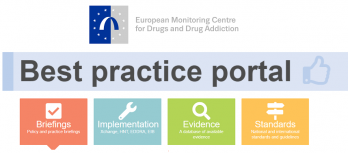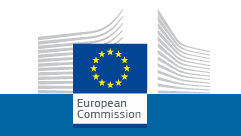"Comprehensive policies are key in the field of drugs"
ReturnPublished on 14/05/17

- Which are the key aspects that articulate the Operational Plan for Drug Control (2014-2018) in Trinidad & Tobago?
Trinidad and Tobago’s Operational Plan for Drug Control 2014-2018 is structured on six (6) thematic Pillars and their goals are as follows:
(1) Institutional Strengthening and International Cooperation: To develop, strengthen and maintain appropriate institutional mechanisms that facilitate the effective and efficient coordination, planning, execution, monitoring and evaluation of the National Drug Policy and its associated interventions.
(2) Research: To facilitate the availability of timely, accurate and relevant information that would enable evidence-based decision making.
(3) Demand Reduction: To improve the physical, mental, social, spiritual and economic health and well-being of citizens through the systemic multi-disciplinary approaches to prevention, treatment and rehabilitation.
(4) Supply Reduction: To facilitate and improve law enforcement activities while advancing strategies geared toward ensuring sustainable, efficient interdiction and reduction of the supply of illegal drugs.
(5) Control Measures: To establish and execute the appropriate strategies that empower relevant authorities to apply counter measures that reduce the occurrence of drug trafficking and related illicit activities.
(6) Monitoring and Evaluation: To improve the mechanisms that facilitate accountability, responsibility, value for money and decision-making within the focal areas of the National Operational Plan.
- Being Trinidad & Tobago a member of the Regional Programme on Drug Demand Reduction, how do you value the shift to a Public Health Approach? Does it imply an increasing number of policies and programmes which recognize addiction as a disease?
Trinidad and Tobago began to consider drug use from a public health perspective as early as 2008, when it articulated this position in its then Drug Plan 2008 -2012. Also included in that Plan was the use of Harm Reduction strategies which promoted street-based interventions for chaotic substance users. Further, the country has also undertaken initiatives such as Drug Treatment Courts which seek to provide a treatment intervention for drug dependent offenders.
There is also need for us to revisit our laws which are very punitive, but public education will continue on the public health approach to drug use.
- What is your analysis of the aspects to be prioritized in drug policies in the Caribbean, considering the milestones achieved and challenges ahead?
I cannot speak about all drug policies in the Caribbean, but I am aware that, based on the work undertaken in the past, some areas that we continue to work on are:
(1) Comprehensive National Policies
(2) Incorporation of a Public Health approach to drug use
(3) Incorporation of policies the make provision for comprehensive alternatives to incarceration in its various forms
(4) Incorporation of Harm Reduction from a policy perspective
(5) Research as a comprehensive component of policy
I know that I am stressing on “Comprehensive” but too often we have piecemeal initiatives that are not grounded in policy, hence my reiteration of “Comprehensive” in many of the areas.
- To what extent can the CELAC-EU bi-regional dialogue and cooperation contribute to improving the effectiveness of drugs policies in both regions?
The work that is currently being undertaken should be maintained. This includes the continued collaboration so that countries learn from each other, while also taking into consideration, what exists, the work of other organisations in the region and allowing member states the opportunity to incorporate cultural issues into the content of policies.
- How do you value COPOLAD's contribution to solving the challenges of drug policies?
COPOLAD brings to the region a broad perspective that incorporates policies from Europe, and therefore we have the opportunity to learn and expand our understanding of issues. At the recent Side Event in Vienna, someone asked how COPOLAD could be relevant to Latin America and the Caribbean. It is important for us as a region to understand what is achieved in other societies and to strive to incorporate those areas from which we can benefit. If we do not have this type of exposure our policies will remain limited to only what we know. COPOLAD can provide insight into more advanced policy. This does not mean that all of it is applicable to the Caribbean or can be incorporated, but it is important to have the exposure.
Downloads
-
2017-05/1494804212_the-operational-plan-for-drug-control-in-trinidad-and-tobago-2014-2018 File PDF. 2.2 Mb
The European Commission is preparing a third phase of this programme, therefore COPOLAD will be back at the beginning of 2021.









